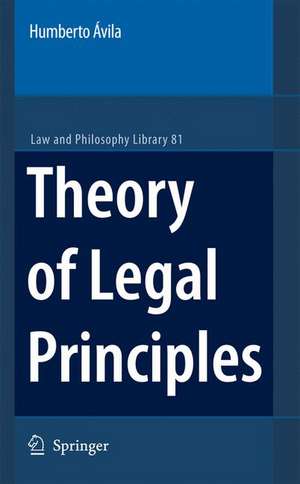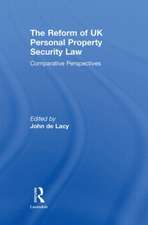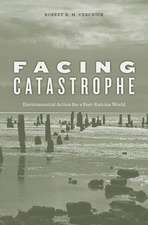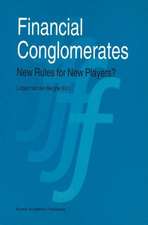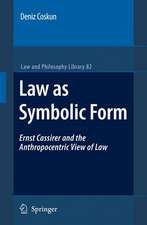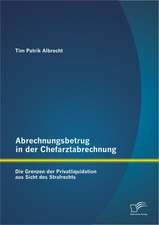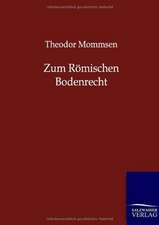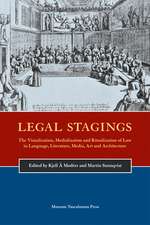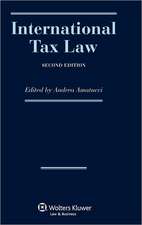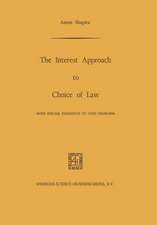Theory of Legal Principles: Law and Philosophy Library, cartea 81
Autor Humberto Avilaen Limba Engleză Hardback – 24 mai 2007
| Toate formatele și edițiile | Preț | Express |
|---|---|---|
| Paperback (1) | 992.97 lei 6-8 săpt. | |
| SPRINGER NETHERLANDS – 23 noi 2010 | 992.97 lei 6-8 săpt. | |
| Hardback (1) | 998.82 lei 6-8 săpt. | |
| SPRINGER NETHERLANDS – 24 mai 2007 | 998.82 lei 6-8 săpt. |
Din seria Law and Philosophy Library
- 20%
 Preț: 813.11 lei
Preț: 813.11 lei - 20%
 Preț: 569.00 lei
Preț: 569.00 lei - 18%
 Preț: 1225.16 lei
Preț: 1225.16 lei - 18%
 Preț: 950.66 lei
Preț: 950.66 lei - 15%
 Preț: 583.43 lei
Preț: 583.43 lei - 15%
 Preț: 639.25 lei
Preț: 639.25 lei - 15%
 Preț: 641.53 lei
Preț: 641.53 lei - 18%
 Preț: 893.84 lei
Preț: 893.84 lei - 24%
 Preț: 797.39 lei
Preț: 797.39 lei - 15%
 Preț: 579.84 lei
Preț: 579.84 lei - 15%
 Preț: 644.95 lei
Preț: 644.95 lei - 18%
 Preț: 895.76 lei
Preț: 895.76 lei - 15%
 Preț: 644.95 lei
Preț: 644.95 lei - 20%
 Preț: 571.85 lei
Preț: 571.85 lei - 15%
 Preț: 642.03 lei
Preț: 642.03 lei - 18%
 Preț: 1232.26 lei
Preț: 1232.26 lei - 18%
 Preț: 1116.05 lei
Preț: 1116.05 lei - 15%
 Preț: 655.92 lei
Preț: 655.92 lei - 18%
 Preț: 833.54 lei
Preț: 833.54 lei - 18%
 Preț: 898.26 lei
Preț: 898.26 lei - 18%
 Preț: 1016.63 lei
Preț: 1016.63 lei -
 Preț: 390.25 lei
Preț: 390.25 lei - 24%
 Preț: 700.89 lei
Preț: 700.89 lei - 18%
 Preț: 999.60 lei
Preț: 999.60 lei - 18%
 Preț: 1115.77 lei
Preț: 1115.77 lei - 18%
 Preț: 1107.88 lei
Preț: 1107.88 lei - 15%
 Preț: 637.46 lei
Preț: 637.46 lei - 18%
 Preț: 781.94 lei
Preț: 781.94 lei - 24%
 Preț: 815.54 lei
Preț: 815.54 lei - 18%
 Preț: 786.18 lei
Preț: 786.18 lei - 18%
 Preț: 735.21 lei
Preț: 735.21 lei - 15%
 Preț: 653.33 lei
Preț: 653.33 lei - 18%
 Preț: 782.10 lei
Preț: 782.10 lei
Preț: 998.82 lei
Preț vechi: 1218.07 lei
-18% Nou
Puncte Express: 1498
Preț estimativ în valută:
191.15€ • 207.56$ • 160.56£
191.15€ • 207.56$ • 160.56£
Carte tipărită la comandă
Livrare economică 22 aprilie-06 mai
Preluare comenzi: 021 569.72.76
Specificații
ISBN-13: 9781402058783
ISBN-10: 1402058780
Pagini: 168
Ilustrații: XIV, 154 p.
Dimensiuni: 155 x 235 x 11 mm
Greutate: 0.41 kg
Ediția:2007
Editura: SPRINGER NETHERLANDS
Colecția Springer
Seria Law and Philosophy Library
Locul publicării:Dordrecht, Netherlands
ISBN-10: 1402058780
Pagini: 168
Ilustrații: XIV, 154 p.
Dimensiuni: 155 x 235 x 11 mm
Greutate: 0.41 kg
Ediția:2007
Editura: SPRINGER NETHERLANDS
Colecția Springer
Seria Law and Philosophy Library
Locul publicării:Dordrecht, Netherlands
Public țintă
ResearchCuprins
1. First Considerations. 2. Norms: Principles and rules. 2.1 First distinctions. 2.2 An overview of the evolution of the distinction between principles and rules. 2.3 Principles and rules distinction criteria. 2.4 Proposal to distinguish principles and rules. 3. Metanorms: Normative Postulates. 3.1 Definition of normative applicative postulate. 3.2 Guidelines to analyze normative applicative postulates. 3.3 Species of postulates.4. Conclusions. 5. References.
Recenzii
Foreword to the German Edition (Theorie der Rechtsprinzipien)
I.
In the past few decades, the most important forward thrust in the fields of Legal Theory and Philosophy has come mainly from the Anglo-American legal universe. That is especially true of the theme of general principles of Law, in which, following the works of Ronald Dworkin, the distinction between rules and principles made its way into the German-speaking legal universe, having found many followers despite some variations and developments in some aspects. The fact that this theme is intensely debated in the Ibero-American legal universe as well has not yet been presented enough in our country.
We are lucky, therefore, that Humberto Bergmann Ávila, with his profound knowledge of the German Legal Science and excellent command of the German language, has presented his "Theory of Legal Principles" also as a dissertation in German. Born in 1970, the author is a Professor of Tax, Finance, Economic and Constitutional Law at the Federal University at Rio Grande do Sul and a lawyer in Porto Alegre, Brazil. He is connected to the German Legal Science above all for his 2002 Doctor degree obtained with his dissertation on "Substantive Constitutional Limitations to the Power to Tax in the Brazilian Constitution and German Fundamental Law," which was presented to the Ludwig-Maximilians-Universität in Munich and published in Baden-Baden in 2002.
II.
Despite his openness to the positions developed heretofore and his willingness to incorporate and preserve fruitful viewpoints of other writers, the author imprints this current work with a clearly independent profile and original conception. An initial thesis of pivotal importance states that the opposition of rule and principle, both understood to the same extent as norms, cannot be seen as an exclusive contradiction. Rather, a legal norm can operate both as a rule and asa principle. Furthermore, the author does not acknowledge the specificity of principles in the fact that they can and ought to be balanced and have a dimension of weight; rather, he proves that this is fundamentally true of rules as well. Consequently he looks for the distinction between rules and principles somewhere else, and finds it firstly in the fact that rules have a direct description of a behavior or a jurisdiction assignment as its object, aiming only indirectly to the realization of a goal, whereas principles directly aim to the realization of a goal and only indirectly influence the behavior or jurisdiction assignments required to achieve such goals. Against that backdrop, the author furthers additional criteria and develops a different proposal of his own to distinguish between rules and principles.
Next, he expands his concept with an additional plane, adding postulates to the rules and principles. In doing so, he has in mind criteria such as proportionality, reasonableness, and legal efficiency and safety, which are usually called principles, quite often without much thought. The author faces such use of language and such way of thinking by arguing that postulates, differently from principles in a more strict sense, do not aim to the direct realization of a goal; on the contrary, they perform the distinct function of prescribing and guiding some thought and argumentation processes, thus structuring the way rules and principles are applied. Hence, postulates are not located on the plane of rules and principles, but on a metaplane, which is the reason the author calls them second degree norms or application norms.
Notwithstanding the high level of abstraction and the density of the language and argumentation in a large part of the work, the presentation is enriched very elegantly with practical examples, taken from the Brazilian and German Law and found mostly in Constitutional and Tax Law, in accordance with the focusof the author’s scientific work in substantive Law. Such fact also outlines the connection of his interest in legal theory to an ample legal-practical foundation – a combination that once again proves its fecundity in this work.
This is the reason it is my desire that this book be received in the German discussion about the Theory of Law with the interest and relevance it deserves.
Munich, August 2005
Prof. Dr. Dr. h.c. mult. Claus-Wilhelm Canaris
Professor of Civil Law and Science of Law Methodology
at the University of Munich, Germany.
Doctor Honoris Causa at the Universities of Lisbon, Autonomous of Madrid, Athens and Graz.
Foreword to the Brazilian Edition (Teoria dos Princípios)
I called Humberto as soon as I finished reading the book originals to tell him about my sincere admiration for the intellectual work it synthesized.
Humberto has developed an extremely important contribution to what I would resort to French to call a nettoyage of jurisprudence. A conference I attended quite recently presented the distinction between interpretation methods, whether grammatical, teleological and so on. I suddenly realized that the lecturer was more than two hundred years old, truly an unburied corpse, to the sound of Ravel’s Bolero...
Humberto, as José Régio would say it, loves the distances and the mirages, the cliffs, the rapids, the deserts. When the soul is not small – quoting from Régio to Pessoa – we shout the wonderful "I am not going this way; I am going only where my steps take me." This is it – I told Humberto – "your book is a walk on your own steps." This book is personally his.
This is why this book is essential and truly breaks a trend that makes principles cliché, rocking the ground of the "self-geniuses." This is what they fear: when questioned, they react likeone fighting for a life saver of some sort. Their problem is they have a single buoy, anchored to the bibliography of ages past – and poorly understood if more recent. They are common townsfolk, without a bibliography...
Let me tell a story. On the last day of the contest I took to become a Full Professor at Largo de São Francisco, as soon as the results were announced, another Professor, who had come from a different State and happened to be there, greeted me and said "This is great! Now you can sell your books!" To this day I do not know whether he meant it in jest or not. But I have the impression that some of them have traded their books long ago, and the buyers can now enjoy untouched old books never read before...
Humberto’s book fascinates me. It confirms my beliefs that interpretation is the interpretation/application of texts and facts and that balancing is a moment within the interpretation/application of the Law.
His guidelines for the analysis of principles – item 2.4.4 – make me see even more clearly that the Law is not interpreted in slices.
The proposition of a heuristic distinction between rule and principle – and postulates – and an "inclusive alternative" is extremely rich. And the tripartite model (rule, principle and applied normative postulate – item 3) illuminates the terrible darkness in which we know who gets lost. The exam of the postulate of proportionality is simply superb.
The text is multiple and varied, always in a positive way. The expounding of the principle of morality – item 2.4.5 – would have to be the first reading assignment for the half-baked "jurisprudents" who think morality replaces the ethic of statutory legality with another one, opposed to the statutes... What some have said in such matter is regrettable.
This is why I took the initiative to tell Humberto that I would immensely love to write theforeword of this book – because then I would indirectly participate in the substantial contribution it brings up to our legal thinking. Being beside him makes me intellectually noble.
Prof. Dr. Eros Roberto Grau
Full Professor of Economic Law at the University of
I.
In the past few decades, the most important forward thrust in the fields of Legal Theory and Philosophy has come mainly from the Anglo-American legal universe. That is especially true of the theme of general principles of Law, in which, following the works of Ronald Dworkin, the distinction between rules and principles made its way into the German-speaking legal universe, having found many followers despite some variations and developments in some aspects. The fact that this theme is intensely debated in the Ibero-American legal universe as well has not yet been presented enough in our country.
We are lucky, therefore, that Humberto Bergmann Ávila, with his profound knowledge of the German Legal Science and excellent command of the German language, has presented his "Theory of Legal Principles" also as a dissertation in German. Born in 1970, the author is a Professor of Tax, Finance, Economic and Constitutional Law at the Federal University at Rio Grande do Sul and a lawyer in Porto Alegre, Brazil. He is connected to the German Legal Science above all for his 2002 Doctor degree obtained with his dissertation on "Substantive Constitutional Limitations to the Power to Tax in the Brazilian Constitution and German Fundamental Law," which was presented to the Ludwig-Maximilians-Universität in Munich and published in Baden-Baden in 2002.
II.
Despite his openness to the positions developed heretofore and his willingness to incorporate and preserve fruitful viewpoints of other writers, the author imprints this current work with a clearly independent profile and original conception. An initial thesis of pivotal importance states that the opposition of rule and principle, both understood to the same extent as norms, cannot be seen as an exclusive contradiction. Rather, a legal norm can operate both as a rule and asa principle. Furthermore, the author does not acknowledge the specificity of principles in the fact that they can and ought to be balanced and have a dimension of weight; rather, he proves that this is fundamentally true of rules as well. Consequently he looks for the distinction between rules and principles somewhere else, and finds it firstly in the fact that rules have a direct description of a behavior or a jurisdiction assignment as its object, aiming only indirectly to the realization of a goal, whereas principles directly aim to the realization of a goal and only indirectly influence the behavior or jurisdiction assignments required to achieve such goals. Against that backdrop, the author furthers additional criteria and develops a different proposal of his own to distinguish between rules and principles.
Next, he expands his concept with an additional plane, adding postulates to the rules and principles. In doing so, he has in mind criteria such as proportionality, reasonableness, and legal efficiency and safety, which are usually called principles, quite often without much thought. The author faces such use of language and such way of thinking by arguing that postulates, differently from principles in a more strict sense, do not aim to the direct realization of a goal; on the contrary, they perform the distinct function of prescribing and guiding some thought and argumentation processes, thus structuring the way rules and principles are applied. Hence, postulates are not located on the plane of rules and principles, but on a metaplane, which is the reason the author calls them second degree norms or application norms.
Notwithstanding the high level of abstraction and the density of the language and argumentation in a large part of the work, the presentation is enriched very elegantly with practical examples, taken from the Brazilian and German Law and found mostly in Constitutional and Tax Law, in accordance with the focusof the author’s scientific work in substantive Law. Such fact also outlines the connection of his interest in legal theory to an ample legal-practical foundation – a combination that once again proves its fecundity in this work.
This is the reason it is my desire that this book be received in the German discussion about the Theory of Law with the interest and relevance it deserves.
Munich, August 2005
Prof. Dr. Dr. h.c. mult. Claus-Wilhelm Canaris
Professor of Civil Law and Science of Law Methodology
at the University of Munich, Germany.
Doctor Honoris Causa at the Universities of Lisbon, Autonomous of Madrid, Athens and Graz.
Foreword to the Brazilian Edition (Teoria dos Princípios)
I called Humberto as soon as I finished reading the book originals to tell him about my sincere admiration for the intellectual work it synthesized.
Humberto has developed an extremely important contribution to what I would resort to French to call a nettoyage of jurisprudence. A conference I attended quite recently presented the distinction between interpretation methods, whether grammatical, teleological and so on. I suddenly realized that the lecturer was more than two hundred years old, truly an unburied corpse, to the sound of Ravel’s Bolero...
Humberto, as José Régio would say it, loves the distances and the mirages, the cliffs, the rapids, the deserts. When the soul is not small – quoting from Régio to Pessoa – we shout the wonderful "I am not going this way; I am going only where my steps take me." This is it – I told Humberto – "your book is a walk on your own steps." This book is personally his.
This is why this book is essential and truly breaks a trend that makes principles cliché, rocking the ground of the "self-geniuses." This is what they fear: when questioned, they react likeone fighting for a life saver of some sort. Their problem is they have a single buoy, anchored to the bibliography of ages past – and poorly understood if more recent. They are common townsfolk, without a bibliography...
Let me tell a story. On the last day of the contest I took to become a Full Professor at Largo de São Francisco, as soon as the results were announced, another Professor, who had come from a different State and happened to be there, greeted me and said "This is great! Now you can sell your books!" To this day I do not know whether he meant it in jest or not. But I have the impression that some of them have traded their books long ago, and the buyers can now enjoy untouched old books never read before...
Humberto’s book fascinates me. It confirms my beliefs that interpretation is the interpretation/application of texts and facts and that balancing is a moment within the interpretation/application of the Law.
His guidelines for the analysis of principles – item 2.4.4 – make me see even more clearly that the Law is not interpreted in slices.
The proposition of a heuristic distinction between rule and principle – and postulates – and an "inclusive alternative" is extremely rich. And the tripartite model (rule, principle and applied normative postulate – item 3) illuminates the terrible darkness in which we know who gets lost. The exam of the postulate of proportionality is simply superb.
The text is multiple and varied, always in a positive way. The expounding of the principle of morality – item 2.4.5 – would have to be the first reading assignment for the half-baked "jurisprudents" who think morality replaces the ethic of statutory legality with another one, opposed to the statutes... What some have said in such matter is regrettable.
This is why I took the initiative to tell Humberto that I would immensely love to write theforeword of this book – because then I would indirectly participate in the substantial contribution it brings up to our legal thinking. Being beside him makes me intellectually noble.
Prof. Dr. Eros Roberto Grau
Full Professor of Economic Law at the University of
Textul de pe ultima copertă
This book intends to help understand and apply principles and rules better. Its target is to keep the distinction between principles and rules whereas structuring it on different foundations than those jurisprudence ordinarily employs. The first object of investigation is the phenomenon of interpretation in Law in order to understand that the classification of certain normative species as either principles or rules depends in the first place on axiological connections that are not ready prior to the interpretation process that unveils them. Then, a definition of principles is proposed, aiming to understand what their unique characteristics are when compared to other norms of the legal order. Thirdly, the conditions for the application of principles and rules are examined, which are the normative applicative postulates. It will be shown, on one hand, that principles not only explicit values, but also set forth precise species of behaviors, though indirectly; on the other hand, the creation of conducts by rules is also to be weighed, even though the behavior set forth in advance may be overcome, depending on the accomplishment of a few requirements. That will surpass both the mere praise of values, which does not create behaviors, and the automatic application of rules. A model is proposed to explain the normative species, which includes structured weighing on the application process while encompassing substantive criteria of justice in its argument, through the analytical reconstruction of the concrete use of normative postulates, especially those of reasonableness and proportionality. All of that is done with a focus on the ability of intersubjective control of the argumentation, which often degenerates into capricious decisionism.
"Although there are books about legal rules, and although the role of legal principles has been a focus of legal theory since Dworkin, there has yet to be a serious systematic study of what legal principles are, where theycome from, how they are identified, and how precisely they intersect with other sources in legal argument and legal decision-making. Professor Avila's much-needed book fills this gap with rigor, depth, and creativity, and it should become essential reading for anyone interested in legal reasoning and legal argumentation."
Frederick Schauer, John F Kennedy School of Government, Harvard University, USA
"Although there are books about legal rules, and although the role of legal principles has been a focus of legal theory since Dworkin, there has yet to be a serious systematic study of what legal principles are, where theycome from, how they are identified, and how precisely they intersect with other sources in legal argument and legal decision-making. Professor Avila's much-needed book fills this gap with rigor, depth, and creativity, and it should become essential reading for anyone interested in legal reasoning and legal argumentation."
Frederick Schauer, John F Kennedy School of Government, Harvard University, USA
Caracteristici
Connects the Anglo-Saxon, the German, and the Spanish/Brazilian discussion in one of the most central issues in legal theory and legal philosophy Gives a central role to metanorms in legal reasoning with a profound analysis of concepts such as balancing, practical coherence, reasonableness and proportionality Does not confine its analyses to a thorough review of the distinction between rules and principles Makes an articulated contribution to the discussion proposing a new model to explain the normative species, which includes structured weighing on the application process while encompassing substantive criteria of justice in its argument Contributes to the discussion in as straightforward a way as possible, including examples in the course of the arguments
